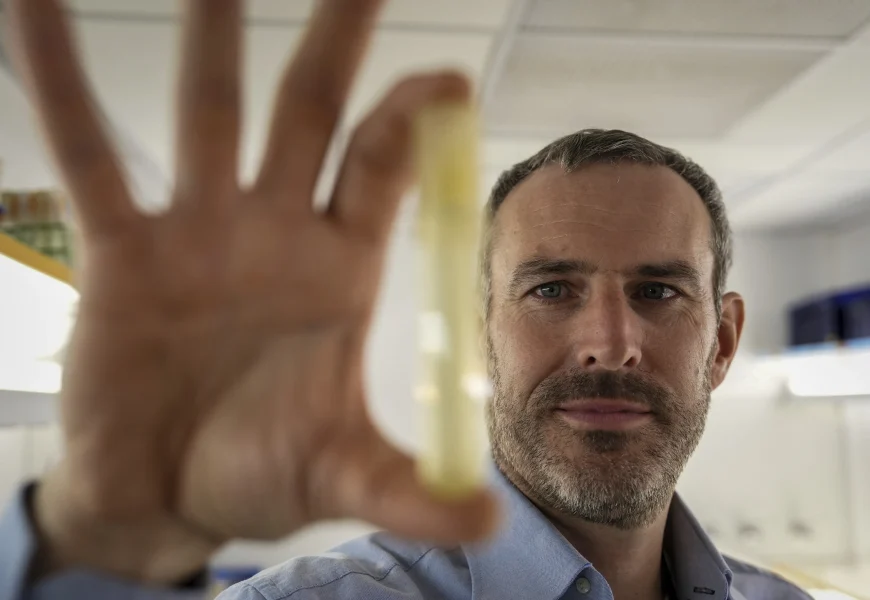SEATTLE (AP) – For decades, scientists believed Prochlorococcus, the smallest and most abundant phytoplankton on Earth, would thrive in a warmer world. But new research suggests the microscopic bacterium, which forms the foundation of the marine food web and helps regulate the planet’s climate, will decline sharply as seas heat up.
Warming seas threaten key phytoplankton species that fuels the food web, study finds
SEATTLE (AP) – For decades, scientists believed Prochlorococcus, the smallest and most abundant phytoplankton on Earth, would thrive in a warmer world. But new research suggests the microscopic bacterium, which forms the foundation of the marine food web and helps regulate the planet’s climate, will decline sharply as seas heat up.
A study published Monday in the journal Nature Microbiology found Prochlorococcus populations could shrink by as much as half in tropical oceans over the next 75 years if surface waters exceed about 82 degrees Fahrenheit (27.8 Celsius). Many tropical and subtropical sea surface temperatures are already trending above average and are projected to regularly surpass 86 degrees Fahrenheit (30 Celsius) over that same period.
“These are keystone species – very important ones,” said François Ribalet, a research associate professor at the University of Washington’s School of Oceanography and the study’s lead author. “And when a keystone species decreases in abundance, it always has consequences on ecology and biodiversity. The food web is going to change.”
Prochlorococcus inhabit up to 75% of Earth’s sunlit surface waters and produce about one-fifth of the planet’s oxygen through photosynthesis. More crucially, Ribalet said, they convert sunlight and carbon dioxide into food at the base of the marine ecosystem.


